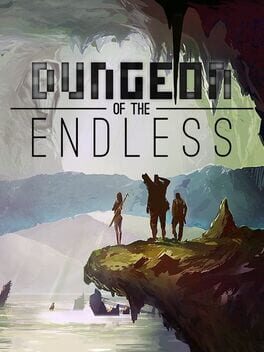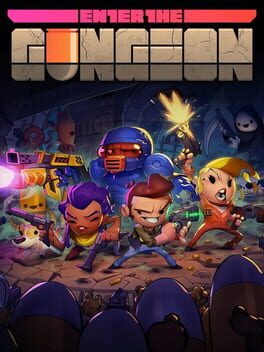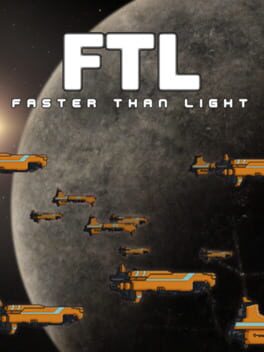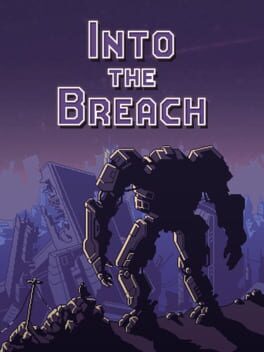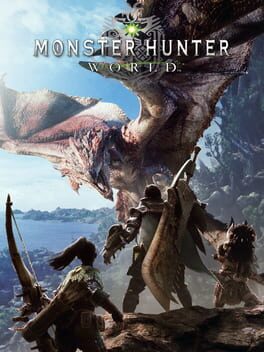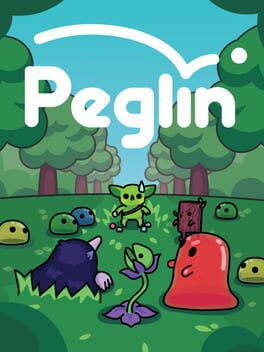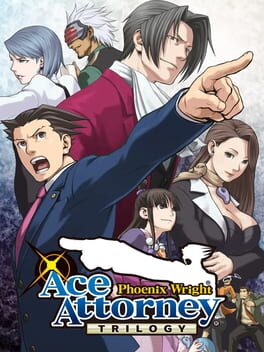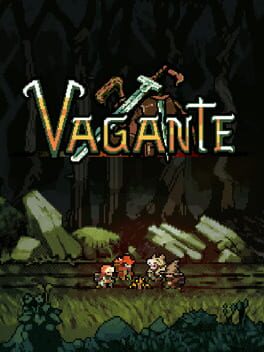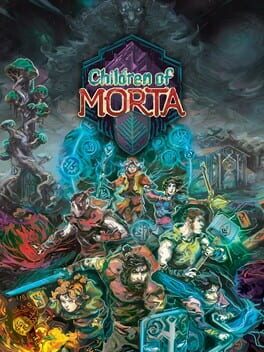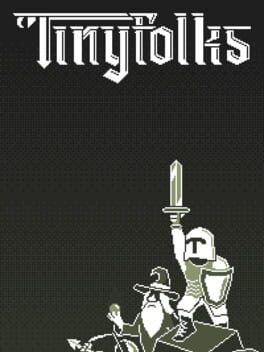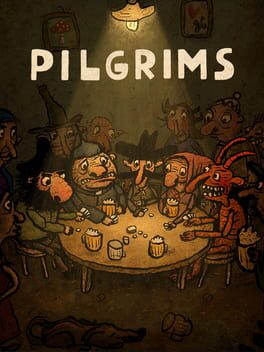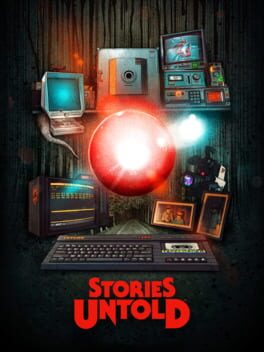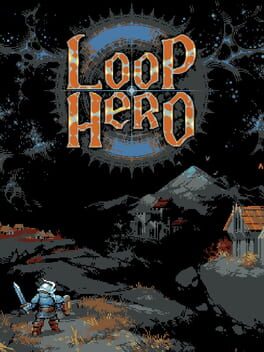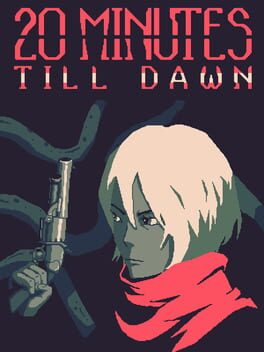Klaustrix
BACKER
The premise has you crash land on an alien planet. The survivors have to fight their way up 12 floors to the surface against increasing numbers of alien hordes held back by only your heroes and tower defences.
The simple idea ends up being a nightmare of random factors which can lead to your demise as you make the journey. Which heroes you encounter, if you can afford them, the level layout, resources, power available, equipment. All of this affects how far you'll get and how likely you are to die trying.
There is a technical side to the game which lets you carefully generate resources, distribute power, block monster spawns, and tactically make use of abilities - but you'll have to master all of that to even stand a chance.
I've been playing this game since 2014, I have 184 hours at the time of writing and have never beaten it, but I keep coming back for more.
The simple idea ends up being a nightmare of random factors which can lead to your demise as you make the journey. Which heroes you encounter, if you can afford them, the level layout, resources, power available, equipment. All of this affects how far you'll get and how likely you are to die trying.
There is a technical side to the game which lets you carefully generate resources, distribute power, block monster spawns, and tactically make use of abilities - but you'll have to master all of that to even stand a chance.
I've been playing this game since 2014, I have 184 hours at the time of writing and have never beaten it, but I keep coming back for more.
2016
One of those games I keep telling myself I'll explore more when I have the time and keep overlooking to go back to in favour of new experiences.
Feels like there's always a lot left to explore and uncover, but since the gameplay at the start of a run is always that same slog going into it I never really get further than the first few levels before I start to feel tired of what I've experienced again.
It lacks that oomph that really motivates you to get into a run and then misses the velocity to keep you going - at least imo. But as I say, I always feel like there's more to unlock and more to uncover. I have more hours across other platforms but even in the 23 on steam maybe it's just the mystique that still has me as charmed as I am by this game.
Feels like there's always a lot left to explore and uncover, but since the gameplay at the start of a run is always that same slog going into it I never really get further than the first few levels before I start to feel tired of what I've experienced again.
It lacks that oomph that really motivates you to get into a run and then misses the velocity to keep you going - at least imo. But as I say, I always feel like there's more to unlock and more to uncover. I have more hours across other platforms but even in the 23 on steam maybe it's just the mystique that still has me as charmed as I am by this game.
A real surprise when this first released beautifully capturing that starship pulp genre. A person at every major ship system station and the excitement of customising and managing a ship, even capturing all the familiar starship adventure tropes - down to even venting o2 to put out fires.
While the game itself can be unforgiving at times and formulaic in the long run there's enough different ships, species, systems, and tactics to make extended play throughs well worth the initial investment. Even now I still have stuff to unlock but the core gameplay loop has become a bit stale as it encourages you to exhaust the content it has on offer pretty quickly.
Sometimes I forget enough to go back and have a good time but only for a couple days at a time every year or so. Even so creating a genuinely new experience and beautifully capturing a genre the way this game did earns it high points for me and that's not to mention the iconic synthwave score.
While the game itself can be unforgiving at times and formulaic in the long run there's enough different ships, species, systems, and tactics to make extended play throughs well worth the initial investment. Even now I still have stuff to unlock but the core gameplay loop has become a bit stale as it encourages you to exhaust the content it has on offer pretty quickly.
Sometimes I forget enough to go back and have a good time but only for a couple days at a time every year or so. Even so creating a genuinely new experience and beautifully capturing a genre the way this game did earns it high points for me and that's not to mention the iconic synthwave score.
2017
I actually hated this when I first played it, I was not feeling charitable and the very slow opening to the game and the very samey opening tunnels from dirtmouth were off-putting. Even I can be a dumb moron at times.
The moment I started to truly venture out and make progress, it all snowballed. I quickly came to appreciate just how well tuned and beautifully presented this game is. Team Cherry set the bar in terms of how utterly polished, beautiful, large, and well designed a game can be without jacking the price up.
It's definitely a best-in-genre for the metroidvania type with a wonderfully imaginative setting, mysterious soft world building, iconic characters, an incredible music score, and that's not even getting into the gameplay. The combat is very tightly balanced, constantly evolving in natural ways, and the movement is so silky smooth with additional unlocks only adding to how smooth and elegant the game feels.
Exploration feels natural and lets you go in any direction, each area has its own play-feel with a variety of level, art, and sound designs that compliment one another. The bosses are tightly designed and challenging, only occasionally in a 'this feels unfair' kinda way. Even the charms are varied and offer such an interesting variety of ways to customise your play experience without overriding the core game mechanics.
It's not a perfect game, but the generosity of the studio and how well made and good looking the game is really overshadow it's issues. Personally I think the shade is unnecessary, its easy to get lost in the less memorable areas, some of the travel can be a pain in the ass (like getting through the queens garden repeatedly).
I find a lot of the end game content gated behind just sucking at the game and similarly while there's tons of DLC not all of them add content I can really engage with because again, I kinda suck at the more extreme challenges. But there's a lot to love regardless of my skill issues.
The moment I started to truly venture out and make progress, it all snowballed. I quickly came to appreciate just how well tuned and beautifully presented this game is. Team Cherry set the bar in terms of how utterly polished, beautiful, large, and well designed a game can be without jacking the price up.
It's definitely a best-in-genre for the metroidvania type with a wonderfully imaginative setting, mysterious soft world building, iconic characters, an incredible music score, and that's not even getting into the gameplay. The combat is very tightly balanced, constantly evolving in natural ways, and the movement is so silky smooth with additional unlocks only adding to how smooth and elegant the game feels.
Exploration feels natural and lets you go in any direction, each area has its own play-feel with a variety of level, art, and sound designs that compliment one another. The bosses are tightly designed and challenging, only occasionally in a 'this feels unfair' kinda way. Even the charms are varied and offer such an interesting variety of ways to customise your play experience without overriding the core game mechanics.
It's not a perfect game, but the generosity of the studio and how well made and good looking the game is really overshadow it's issues. Personally I think the shade is unnecessary, its easy to get lost in the less memorable areas, some of the travel can be a pain in the ass (like getting through the queens garden repeatedly).
I find a lot of the end game content gated behind just sucking at the game and similarly while there's tons of DLC not all of them add content I can really engage with because again, I kinda suck at the more extreme challenges. But there's a lot to love regardless of my skill issues.
2018
An interesting follow up from Subset Games. The Kaiju themed 3-piece chess match with waves of enemies and environmental mechanics, combined with individual stage-specific challenges makes for a fun and varied experience. The different mecha teams, each of which have their own tactical approach and offer different action combos adds to that.
Replayability is at the core of the game, but the formula gets fairly repetitive fast. The different islands have their unique gimmicks, but in an already challenging game it tends to feel like the mechanics get overwhelming in short order.
I never found the pilot system particularly engaging, especially since I rarely feel like I have that much control over who lives or dies when everything goes wrong. Equally I don't feel like I get to experiment with the shop very much. Maybe I just tend towards playing it safer, but even then I've not completed the game, only reached the 5th island at which point the complexity ramps up a bit too much and I get overwhelmed.
That said it's a very solidly designed game, with a unique theme, cool concept, and interesting gameplay. It's a tightly wound but compact clock that is fun to go back to once in a while, but I rarely ever feel compelled to endure long enough to unpack all of what it has to offer.
Replayability is at the core of the game, but the formula gets fairly repetitive fast. The different islands have their unique gimmicks, but in an already challenging game it tends to feel like the mechanics get overwhelming in short order.
I never found the pilot system particularly engaging, especially since I rarely feel like I have that much control over who lives or dies when everything goes wrong. Equally I don't feel like I get to experiment with the shop very much. Maybe I just tend towards playing it safer, but even then I've not completed the game, only reached the 5th island at which point the complexity ramps up a bit too much and I get overwhelmed.
That said it's a very solidly designed game, with a unique theme, cool concept, and interesting gameplay. It's a tightly wound but compact clock that is fun to go back to once in a while, but I rarely ever feel compelled to endure long enough to unpack all of what it has to offer.
Having played monster hunter since Freedom Unite on the PSP I've been through maybe 5 or 6 of them at this point. I had initially taken one look at World and seen it as a 'dumbing down' of the concept, but I'm glad I gave it a chance.
The result was a very pleasant surprise as everything is so much more streamlined. I thought the scout flies would oversimplify tracking, but rather they act as a guide through the vast, beautifully detailed environments letting you soak in the atmosphere without worrying about navigating their dense, complex paths.
The core aspects are there - weapon variety, slow tactical clunky combat, and iconic monsters with complex behaviour. This entry really feels like it's trimmed the experience down to what really matters while maintaining some of the 'work' that the series is famous for.
Only being able to select Palico equipment from your room is annoying, and every NPC needing to spout dialogue before every key menu is tedious, but these little things are more than made up for by the visuals. From the environments, to the armour sets, animations, and cut-scenes everything is beautiful in HD.
The story is nothing to rave about, but MH hasn't ever been about that. The hunts are the stars of the show and they're done justice from low to high rank. I've heard that Rise goes too far in the same direction so maybe it was worth saving world for a special solo play-through.
The result was a very pleasant surprise as everything is so much more streamlined. I thought the scout flies would oversimplify tracking, but rather they act as a guide through the vast, beautifully detailed environments letting you soak in the atmosphere without worrying about navigating their dense, complex paths.
The core aspects are there - weapon variety, slow tactical clunky combat, and iconic monsters with complex behaviour. This entry really feels like it's trimmed the experience down to what really matters while maintaining some of the 'work' that the series is famous for.
Only being able to select Palico equipment from your room is annoying, and every NPC needing to spout dialogue before every key menu is tedious, but these little things are more than made up for by the visuals. From the environments, to the armour sets, animations, and cut-scenes everything is beautiful in HD.
The story is nothing to rave about, but MH hasn't ever been about that. The hunts are the stars of the show and they're done justice from low to high rank. I've heard that Rise goes too far in the same direction so maybe it was worth saving world for a special solo play-through.
2022
They brought back peggle, and this time it has a kind of RPG meets roguelite theme. It's very cute and fun but short.
Gameplay is basically peggle but each orb has different mechanics for how it interacts with the pegs, and you accumulate new orbs as you play or level up existing orbs to become more powerful. At the same time enemies will constantly be approaching along the top of the screen, you deal damage with each peg hit based on the strength / features of the orb and you take damage if the enemies reach you.
It's a clever and simple design that's very easy to pick up and addicting to play. The only downside is that there's so little content. More is slowly getting added but because of how the game is built it's easy to experience everything quickly. A good idea with slightly too little substance, but a great starting point.
Gameplay is basically peggle but each orb has different mechanics for how it interacts with the pegs, and you accumulate new orbs as you play or level up existing orbs to become more powerful. At the same time enemies will constantly be approaching along the top of the screen, you deal damage with each peg hit based on the strength / features of the orb and you take damage if the enemies reach you.
It's a clever and simple design that's very easy to pick up and addicting to play. The only downside is that there's so little content. More is slowly getting added but because of how the game is built it's easy to experience everything quickly. A good idea with slightly too little substance, but a great starting point.
A charming take on the visual novel formula that combines investigation scenes collecting evidence, and trial scenes where you try to point out contradictions in testimony using evidence. Unfortunately this series suffers from bad writing and how strictly it wants you to follow its formulaic approach.
The investigations won't progress until you exhaustively check every item on every person or go to every location looking for the next event trigger so you don't miss anything for the court scenes. This ensures you never go into a case without all the info 'required' to make winning possible but makes the game very tedious.
The difficulty comes from selecting the right evidence in court but there's many points where suddenly the next choice is basically a game over if you don't select the right combination. This is made worse by the game wanting you to present evidence in a very specific order.
There were multiple times I wanted to point out clear contradictions but I was getting ahead of the story so it failed me for doing so. What's most frustrating is that stories are uncovered during the trials. Wright spends most of each episode bluffing and guessing his way through the court scenes, figuring things out only at the last moment which leaves you in the dark too and unable to do more than guess at where the writer is going. I think it's meant to make it more tense but it just feels hollow and makes the character seem inept.
Maybe if the stories were a bit less cliched and the gameplay more varied it would be more fun. Psyche-locks were an interesting addition but quickly became stale because they're court gameplay during investigations. Also what happened to 3D evidence? An interesting premise but does very little with it, they should have just made an anime instead.
The investigations won't progress until you exhaustively check every item on every person or go to every location looking for the next event trigger so you don't miss anything for the court scenes. This ensures you never go into a case without all the info 'required' to make winning possible but makes the game very tedious.
The difficulty comes from selecting the right evidence in court but there's many points where suddenly the next choice is basically a game over if you don't select the right combination. This is made worse by the game wanting you to present evidence in a very specific order.
There were multiple times I wanted to point out clear contradictions but I was getting ahead of the story so it failed me for doing so. What's most frustrating is that stories are uncovered during the trials. Wright spends most of each episode bluffing and guessing his way through the court scenes, figuring things out only at the last moment which leaves you in the dark too and unable to do more than guess at where the writer is going. I think it's meant to make it more tense but it just feels hollow and makes the character seem inept.
Maybe if the stories were a bit less cliched and the gameplay more varied it would be more fun. Psyche-locks were an interesting addition but quickly became stale because they're court gameplay during investigations. Also what happened to 3D evidence? An interesting premise but does very little with it, they should have just made an anime instead.
2018
This game is a pretty by the book 2D interpretation of the roguelite. Classic fantasy character classes, bog standard fantasy setting, randomised potions and scrolls, a variety of god temples, and very rigid mechanical gameplay that you have to learn to master.
While nothing overtly special, I do find this game very charming. The 2D variation of gameplay gives it a kind of spelunky by way of D&D feel. There's an interesting variety of loot to experience so that each run genuinely feels like you're getting something new, and the maps are procedurally generated with a variety of traps and secrets that feel rewarding to learn.
There's a standard cast of enemies you learn to deal with, and a couple different bosses for each level that take a bit of getting used to. You gradually learn some of the gameplay tricks like being able to trade equipment using an altar, and the secret chest will equip you well enough to survive the boss. Each class has an interesting (albeit standardised) set of features to explore different builds and make replaying them feel interesting.
Vagante is a comfort food game for me, it doesn't do a lot but does what it does very consistently. It's a game I'll go back to every few months and have a few runs that feel good, reach the content I'm least familiar with, learn a little something new and do it over again next month. It's got a lot of what I really like about the genre, so I keep coming back for more.
While nothing overtly special, I do find this game very charming. The 2D variation of gameplay gives it a kind of spelunky by way of D&D feel. There's an interesting variety of loot to experience so that each run genuinely feels like you're getting something new, and the maps are procedurally generated with a variety of traps and secrets that feel rewarding to learn.
There's a standard cast of enemies you learn to deal with, and a couple different bosses for each level that take a bit of getting used to. You gradually learn some of the gameplay tricks like being able to trade equipment using an altar, and the secret chest will equip you well enough to survive the boss. Each class has an interesting (albeit standardised) set of features to explore different builds and make replaying them feel interesting.
Vagante is a comfort food game for me, it doesn't do a lot but does what it does very consistently. It's a game I'll go back to every few months and have a few runs that feel good, reach the content I'm least familiar with, learn a little something new and do it over again next month. It's got a lot of what I really like about the genre, so I keep coming back for more.
2019
I really like the concept of this game, a family of adventurers who each embody a different class that symbolises their character, but despite how beautiful the game is be prepared for a lot of short repetitive grinds as this game is a miser.
The family house acts as the game hub and upgrading the rooms unlocks permanent in-game upgrades. As the story unfolds family members unlock their class and become new playable characters. It's a cute and cosy approach to the hub and permanent unlocks that is charming, even if you have to sit through the whole 'my family members becoming heroes puts them in danger' drama.
The gameplay meanwhile is very arcade-y. The levels are generated from large interlocking sections of scenery and paths lead to quests, events, or challenges that encourage exhaustively exploring each floor. It's a decent design and the idea of story rooms which offer new narrative threads to be explored each time you get back in the house is a cool aspect.
However I find the gameplay to be a battle of attrition rather than skill as you take damage so unavoidably. I feel like you can only really upgrade your way through the challenge, but it could just be skill issue. At the same time each level is relatively short and heroes become fatigued with over-use so you have to swap characters often. After 54 hours I have 4 characters but I'm only on the 2nd level so it's become a repetitive and dull grind to get anywhere.
While I've barely scratched the surface and I absolutely see the potential, that grind is unappealing. I feel like I've played a lot and it's frustrating to have barely gotten anywhere. The punishing gameplay and repeating the same 2 levels over and over just doesn't keep me engaged like other roguelites do. The game comes off feeling stingy which is a shame because it seems to have so much to offer.
The family house acts as the game hub and upgrading the rooms unlocks permanent in-game upgrades. As the story unfolds family members unlock their class and become new playable characters. It's a cute and cosy approach to the hub and permanent unlocks that is charming, even if you have to sit through the whole 'my family members becoming heroes puts them in danger' drama.
The gameplay meanwhile is very arcade-y. The levels are generated from large interlocking sections of scenery and paths lead to quests, events, or challenges that encourage exhaustively exploring each floor. It's a decent design and the idea of story rooms which offer new narrative threads to be explored each time you get back in the house is a cool aspect.
However I find the gameplay to be a battle of attrition rather than skill as you take damage so unavoidably. I feel like you can only really upgrade your way through the challenge, but it could just be skill issue. At the same time each level is relatively short and heroes become fatigued with over-use so you have to swap characters often. After 54 hours I have 4 characters but I'm only on the 2nd level so it's become a repetitive and dull grind to get anywhere.
While I've barely scratched the surface and I absolutely see the potential, that grind is unappealing. I feel like I've played a lot and it's frustrating to have barely gotten anywhere. The punishing gameplay and repeating the same 2 levels over and over just doesn't keep me engaged like other roguelites do. The game comes off feeling stingy which is a shame because it seems to have so much to offer.
2022
I gave this one a shot recently but the first hour feels like it will be the same as the next 8. You have a set number of days to adventure, generate resources, hire other adventurers, level everyone up, and beat the big bad - however each adventure brings with it recovery time and fatigue, and all the village buildings require constructing and upgrading.
The combat encounters are turn based affairs with each character having 1 or 2 abilities, so it's all very familiar. It felt like a very minimalist incarnation of darkest dungeon, the gameplay simplified down to it's most essential mechanics and visuals. I can see this being good fun for someone, but that person is not me.
Take away the timer and I might spend my time having fun with it but seeing that timer tick down tells me there's a limited number of 'winning' moves I can make here and I don't have the patience or interest to learn what they are. Cute art and aesthetic but bigger games have done the same thing better and I'm not even interested in replaying those.
The combat encounters are turn based affairs with each character having 1 or 2 abilities, so it's all very familiar. It felt like a very minimalist incarnation of darkest dungeon, the gameplay simplified down to it's most essential mechanics and visuals. I can see this being good fun for someone, but that person is not me.
Take away the timer and I might spend my time having fun with it but seeing that timer tick down tells me there's a limited number of 'winning' moves I can make here and I don't have the patience or interest to learn what they are. Cute art and aesthetic but bigger games have done the same thing better and I'm not even interested in replaying those.
2019
I've grown up playing Amanita games so I was pleased to see Pilgrims as part of the humble bundle I picked up. The gameplay is quite unique with each area acting like a stage on which you can play your character and item cards to 'add' them to the scene and see what plays out. It's a very imaginative re-envisioning of the point and click adventure.
The art style is, as always, wonderfully done like the imagining of a folk story. The characters are very expressive through the grunts and rough animation that Amanita are famous for. You quickly grasp how one character relates to another and using the 'speech bubble' icons you understand what a given character wants.
Unfortunately the game is incredibly limited. There is only one map to explore with a handful of scenes to see things play out on. Plus you can only play one character card at a time and each item card essentially plays through an entire animated scene before playing its role or popping off the scene again. So in actuality there's not much you can do with the variety of cards at your disposal.
Equally the puzzles are all very straightforward. Once you've explored a bit everything becomes very obvious and just a matter of going through the motions. There's very little in the way of challenge and the couple of times I found myself unsure what to do you can just brute force the solutions.
What's there is a fun an interesting little sandbox that has clearly been painstakingly made by a small team - I guess my main complaint is just that I wanted more! As it is the game felt like a very lovingly crafted demo.
The art style is, as always, wonderfully done like the imagining of a folk story. The characters are very expressive through the grunts and rough animation that Amanita are famous for. You quickly grasp how one character relates to another and using the 'speech bubble' icons you understand what a given character wants.
Unfortunately the game is incredibly limited. There is only one map to explore with a handful of scenes to see things play out on. Plus you can only play one character card at a time and each item card essentially plays through an entire animated scene before playing its role or popping off the scene again. So in actuality there's not much you can do with the variety of cards at your disposal.
Equally the puzzles are all very straightforward. Once you've explored a bit everything becomes very obvious and just a matter of going through the motions. There's very little in the way of challenge and the couple of times I found myself unsure what to do you can just brute force the solutions.
What's there is a fun an interesting little sandbox that has clearly been painstakingly made by a small team - I guess my main complaint is just that I wanted more! As it is the game felt like a very lovingly crafted demo.
2017
This is an anthology game which consists of 4 stories, each of which explores different styles of puzzle gameplay through largely static set pieces.
Without getting into the spoilers the game is pretty short, and while each story on its own makes for an interesting little horror story and explores some very creative mysteries - each one feels like it fails to really stick the landing. Every one of the mysteries ends up feeling more compelling than the reveals and the last story take an abrupt turn that feels kinda out of left field.
It feels like someone put a lot of heart into the ideas in each episode, but they really end up with that JJ Abrams mystery box problem - the resolution for each mystery and how it all ties together ends up feeling like an afterthought - which is genuinely a shame because they each start off with such compelling ideas.
A fun creative experiment from the developer, but would be nice to see them explore each idea more fleshed out rather than the resulting mish-mash seen here. Points for sheer inventiveness though.
Without getting into the spoilers the game is pretty short, and while each story on its own makes for an interesting little horror story and explores some very creative mysteries - each one feels like it fails to really stick the landing. Every one of the mysteries ends up feeling more compelling than the reveals and the last story take an abrupt turn that feels kinda out of left field.
It feels like someone put a lot of heart into the ideas in each episode, but they really end up with that JJ Abrams mystery box problem - the resolution for each mystery and how it all ties together ends up feeling like an afterthought - which is genuinely a shame because they each start off with such compelling ideas.
A fun creative experiment from the developer, but would be nice to see them explore each idea more fleshed out rather than the resulting mish-mash seen here. Points for sheer inventiveness though.
2021
I sure do love a good devolver game, and Loop Hero has that quintessential indie goodness at it's heart. The concept for the game is very engaging - an RPG that plays automatically on a loop and while your character levels up and collects loot, you collect cards which you can use to build structures on and around the track which add enemies, villages, and events.
It's a cool idea so it's disappointing that it exhausts itself quickly. The game is intended to be played many times in order to collect resources which you use to build a town in a micro reflection of the main game, placing structures to unlock permanent upgrades, character classes, and special features like resurrections.
As you unlock structures you also unlock new cards and you can customise your 'deck' to access different combos and synergies between the structures in-game. Unfortunately there's a very limited number of cards overall and their actual impact is pretty minimal just affecting some monster spawns. There's also only a handful of strategies that will actually result in a winning game and that is still dependent on the luck of equipment drops. Features like the alchemist, power-up crafting, and farms just feel like they exist to ease the grind a bit but it all feels mathematical, not substantive in gameplay.
The story is interesting but very short with the game only having 3 levels that are effectively identical beyond some stricter rules and number changes. Most of the game will be spent grinding resources to build your home town up. The environmental card combinations were fun to discover, and some of the structure interactions were fun, but in the end it felt like too little to really support the game long term. I imagine that's why there's only 3 levels.
Creative, interesting new ideas being explored, but not very deep.
It's a cool idea so it's disappointing that it exhausts itself quickly. The game is intended to be played many times in order to collect resources which you use to build a town in a micro reflection of the main game, placing structures to unlock permanent upgrades, character classes, and special features like resurrections.
As you unlock structures you also unlock new cards and you can customise your 'deck' to access different combos and synergies between the structures in-game. Unfortunately there's a very limited number of cards overall and their actual impact is pretty minimal just affecting some monster spawns. There's also only a handful of strategies that will actually result in a winning game and that is still dependent on the luck of equipment drops. Features like the alchemist, power-up crafting, and farms just feel like they exist to ease the grind a bit but it all feels mathematical, not substantive in gameplay.
The story is interesting but very short with the game only having 3 levels that are effectively identical beyond some stricter rules and number changes. Most of the game will be spent grinding resources to build your home town up. The environmental card combinations were fun to discover, and some of the structure interactions were fun, but in the end it felt like too little to really support the game long term. I imagine that's why there's only 3 levels.
Creative, interesting new ideas being explored, but not very deep.
2022
A new entry in the emerging Enemy Hell/Bullet Heaven genre popularised by Vampire Survivors as a remix of the Bullet Hell genre. It has nice sharp pixel artwork and a clean art style, but there's not much else on offer here.
There's a variety of characters each with their own gimmick, a variety of weapons which vary the shooting pattern and some power up interactions, but once you've played to the end you've experienced most of what the game has to offer. There are permanent upgrades but what they add feels like it gets lost in the noise and can't really be felt from one game to another.
The power ups don't feel well thought out either. There's not any meaningful interactions between them and there's nothing more to discover - what you start with is what you get for the rest of the game. A given playthrough basically ensures you'll unlock 70% of them every time anyway and several are required every run to maintain damage output so every run feels very samey.
If you're looking for substance it's probably worth looking elsewhere, but that seems to be a staple of the genre so far.
There's a variety of characters each with their own gimmick, a variety of weapons which vary the shooting pattern and some power up interactions, but once you've played to the end you've experienced most of what the game has to offer. There are permanent upgrades but what they add feels like it gets lost in the noise and can't really be felt from one game to another.
The power ups don't feel well thought out either. There's not any meaningful interactions between them and there's nothing more to discover - what you start with is what you get for the rest of the game. A given playthrough basically ensures you'll unlock 70% of them every time anyway and several are required every run to maintain damage output so every run feels very samey.
If you're looking for substance it's probably worth looking elsewhere, but that seems to be a staple of the genre so far.
